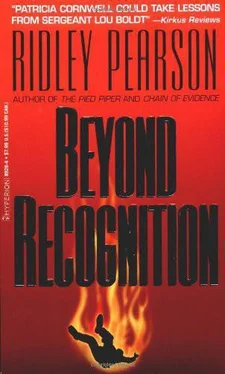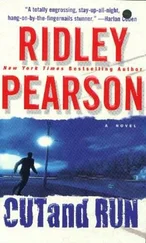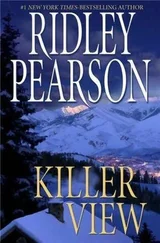Ridley Pearson - Beyond Recognition
Здесь есть возможность читать онлайн «Ridley Pearson - Beyond Recognition» весь текст электронной книги совершенно бесплатно (целиком полную версию без сокращений). В некоторых случаях можно слушать аудио, скачать через торрент в формате fb2 и присутствует краткое содержание. Жанр: Триллер, на английском языке. Описание произведения, (предисловие) а так же отзывы посетителей доступны на портале библиотеки ЛибКат.
- Название:Beyond Recognition
- Автор:
- Жанр:
- Год:неизвестен
- ISBN:нет данных
- Рейтинг книги:5 / 5. Голосов: 1
-
Избранное:Добавить в избранное
- Отзывы:
-
Ваша оценка:
- 100
- 1
- 2
- 3
- 4
- 5
Beyond Recognition: краткое содержание, описание и аннотация
Предлагаем к чтению аннотацию, описание, краткое содержание или предисловие (зависит от того, что написал сам автор книги «Beyond Recognition»). Если вы не нашли необходимую информацию о книге — напишите в комментариях, мы постараемся отыскать её.
Beyond Recognition — читать онлайн бесплатно полную книгу (весь текст) целиком
Ниже представлен текст книги, разбитый по страницам. Система сохранения места последней прочитанной страницы, позволяет с удобством читать онлайн бесплатно книгу «Beyond Recognition», без необходимости каждый раз заново искать на чём Вы остановились. Поставьте закладку, и сможете в любой момент перейти на страницу, на которой закончили чтение.
Интервал:
Закладка:
All senses alert, Cole Robbie rose to his knees and then to his feet and began to creep ahead, one quiet footfall at a time. He realized in that instant that he was dominated by his senses, that he had lost his magical connection with the power of being, of guidance, upon which his confidence relied, the source of all good in his life. He didn’t want to be thinking, listening, watching; he felt trapped in himself.
The suspect came from above, completely unexpectedly, falling out of the darkness and onto Robbie painfully and with determination. A pair of hands found Robbie’s head. One firmly gripped his chin; the other pressed tightly against the back of the cop’s neck. Cole Robbie lay on the ground, face first, still reeling from the impact, unable to gather his senses. He knew this grip and what was coming. The intention was to break his neck with a single jerk, a spine-twisting snap, and leave him lying here. Robbie could defeat the move with a simple anticipation of which direction the suspect would choose. But there was no time for such thought. God help me, he thought, and forced his chin left, just as the suspect made an identical move with his hands.
People would say that Robbie instinctively felt the guy’s fingers against his face and his brain registered that the fingers were on the right side of the face, and therefore the guy was left-handed and would attempt a twist to the left; when combined with Robbie’s choice, the attempt was in part defeated. They would say that all his training and all his experience had combined to save a cop’s life. For the devastating crack the suspect heard, before abandoning the cop for paralyzed or dead, was not Cole Robbie’s neck but his jaw. Robbie would drink from a straw for the next eight weeks, but he would live; he would walk; he would run with his daughter and make love with his wife. And he would know for the rest of his days that his moment of decision had nothing to do with training or experience but was born of those final words he voiced internally before the deed was done.
The suspect cut through the woods, heading back toward the very fire he had himself set, perhaps aware that heat-seeking devices were useless when aimed in the direction of such an inferno, perhaps only lucky to have made such a choice. Cole Robbie watched him run. On that night, it was the last anyone saw of the man.
Boldt was of good stock. After firing those shots, he immediately regretted doing so, because he didn’t want to be in the position of needing anyone’s help. It was the spreading fire that had put the fear in his heart; he wasn’t outwardly afraid of many things, but fire was one of them. He rolled and came to his knees. All he needed for motivation was the sound of those approaching sirens, fire and police. He struggled to his feet, tested out various limbs, and pronounced himself sound. He would be badly bruised, and he would need a hot bath, but he wasn’t going to be admitted to any emergency room. He would accept responsibility for the warning shots, explaining that at the time he was down and unable to move. The truth nearly always worked best.
The fire crews contained what remained of the fire. Strangely, what had begun as a white hot inferno had quickly petered out into one burning tree and some smoldering underbrush. When no detonator and no can or jar that might have contained the accelerant was found at the scene, speculation ran rampant among those in the know. Many theories surfaced; but with no physical proof, excepting some broken glass fragments found much later, the fire that consumed and killed detective Constance Branslonovich was listed as “arson assault by mysterious causes.”
The Seattle press had for some years worked in concert with law enforcement. It was a relationship for which the city government was grateful. The press could kill you if they so chose. The Night of the Burning Tree, as it came to be called among law enforcement officers, proved an exception to the rule. The purple cone of fire had been seen from five miles away and was said to have stretched nearly three hundred feet in the air. An eyewitness put the top of the flames above the Space Needle, but this was gross exaggeration and journalists elected to ignore it. Whereas the fire in the park and the death of an animal control officer (Branslonovich’s identity was temporarily withheld by mutual agreement) were reported at the top of the eleven o’clock news and on the morning edition’s front page, the subsequent detailed search of Boldt’s residence went unreported, based almost entirely on the fact that the press agreed to keep secret the residential addresses of law enforcement officers for reasons of security. The bomb squad, the scientific identification unit, and the Marshal Five arson task force, including Steven Garman, gathered at the Boldt home at 11:45 P.M., thirty minutes after the last of the fire trucks had departed Woodland Park. The bomb squad and their dogs led the first wave, searching doors, windows, switches, and flooring for triggers. The Marshall Fives followed next. Nothing indicating attempted arson was discovered.
At 1:00 A.M., Bernie Lofgrin’s identification unit went to work, beginning with the lawn and perimeter grounds. Plaster casts were made of the ladder impressions, although Lofgrin agreed with Boldt’s assessment that the impressions “appeared consistent” with impressions at the two prior burn sites, an analysis later confirmed by the lab comparison tests.
By the time Boldt entered his own house there were nine other people inside, including an electrical engineer who was using a sophisticated voltage tester to, as he put it, “measure line resistance,” and a carpenter who was drilling holes into various walls so that a fiberoptic camera could be inserted and the inside of the walls examined. This study revealed that the house had adequate insulation, as well as a piece of newspaper dated 1922, and a Stanley screwdriver that was probably equally as old. At the end of three hours of intense scrutiny, the head of the bomb squad and Lofgrin pulled Boldt aside and pronounced his home “clean,” which after that invasion it was anything but. A more thorough examination of the outside wall where the ladder had been placed was scheduled for daylight, and Boldt was ordered to sleep elsewhere, though nothing suspicious had been found.
Garman, who joined the huddle, said, “Your wife’s arrival at the house probably put the guy off his mission.” Boldt was not comfortable with Garman’s presence in the first place. The sergeant grunted a response that no one understood.
Lofgrin said, typically technical, “That would explain the discovery of the impressions and help to explain the absence of any accelerant.”
“It doesn’t explain what happened in the woods,” Boldt pointed out.
Arson detective Neil Bahan said, “Ah, but it might! We don’t know that whoever that was, let’s call him the arsonist, was there to watch or wait. He may have, for instance, been awaiting a chance at a return visit. To finish the job.” Boldt wanted everyone out of there, even if he couldn’t stay. He wanted some peace and quiet. Branslonovich was dead; Robbie was in an emergency room getting his jaw wired. There was no proof that Boldt’s house had been rigged. He was being asked to believe that the arsonist had been hanging around the forest waiting for a good time to return. He didn’t like any of it.
Shoswitz asked to see him in his office first thing in the morning. Boldt feared he might lose the case-a case he had not wanted from the beginning but was, by that time, too personally involved in to want to surrender it to someone else. Thirty minutes later the last of them was out the front door. Boldt locked up tight and called Liz at Willie and Susan’s and woke them all. He spoke to his wife for nearly half an hour, explaining everything as best he could. He felt both embarrassed and ashamed that he had brought this onto his family. She told him that, with the kids asleep, she was there for the night.
Читать дальшеИнтервал:
Закладка:
Похожие книги на «Beyond Recognition»
Представляем Вашему вниманию похожие книги на «Beyond Recognition» списком для выбора. Мы отобрали схожую по названию и смыслу литературу в надежде предоставить читателям больше вариантов отыскать новые, интересные, ещё непрочитанные произведения.
Обсуждение, отзывы о книге «Beyond Recognition» и просто собственные мнения читателей. Оставьте ваши комментарии, напишите, что Вы думаете о произведении, его смысле или главных героях. Укажите что конкретно понравилось, а что нет, и почему Вы так считаете.












